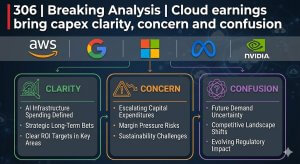
The graphics processing units (GPUs) database market has established itself as a substantial startup niche. However, it’s not clear if or when GPU-accelerated databases will ever move into the mainstream enterprise DBMS arena.
Though GPUs have made some inroads in recent years into database architectures, it appears unlikely that they’ll break out of the application-specific co-processor bucket and address the core transaction processing workloads for which most organizations use database management systems.
That’s because GPUs are ill-suited for accelerating any database operations that can’t be parallelized, or that don’t involve floating point and other numeric processing, or that require a lot of data to be moved back and forth across the system bus from the main CPUs.
Commercial GPU-optimized databases have established themselves as a promising niche, mostly coming from startups focused on acceleration of data analytics applications, which is a hugely crowded niche market. For example:
- Brytlyt’s GPU-accelerated analytic database can cost-effectively query multibillion row datasets in seconds.
- BlazingDB’s GPU-accelerated database can run fast, simple, SQL queries on massive data sets.
- Kinetica’s plarform can perform standard SQL queries on billions of rows in microseconds while concurrently visualizing results, executing machine-learning models, and ingesting large amounts of streaming data.
- OmniSci’s platform compiles SQL queries into machine code that can run on Nvidia GPUs as well as X86 or Power CPUs.
- SQream’s GPU-accelerated columnar database processes trillions of rows in near real-time.
It’s worth noting that none of the leading enterprise DBMS vendors have jumped into the market for GPU-accelerated database. Most of them partner with NVIDIA for GPU-acceleration of AI workloads in their cloud and on-premises solution portfolios. Some partner with GPU database niche vendors and also integrate those partners’ offerings as accelerators for analytics-intensive in-database workloads such as data warehousing and AI.
GPUs make great sense as analytics co-processors in the enterprise database. You can in fact run some of your enterprise database workloads on a GPU, as an Oracle product manager discusses in this recent blog. What you gain by doing so is faster analytics processing, enhancing the database’s performance beyond what the vendor may have already engineered through incorporation of columnar, in-memory, single-instance multiple data, intelligent caching, high-bandwidth server memory, and other sophisticated techniques applied to CPU-based processing.
Be that as it may, where GPUs clearly stand out is in image processing and artificial intelligence (AI). Whereas CPUs are optimized for performing a small number of simple calculations on large amounts of data, GPUs excel in parallelizing many computations on small amounts of data. GPUs are well-suited for acceleration of deep learning (repeated matrix computations to extract insights from each data set processed) and imaging (millions of vector computations per image processed). That explains why, per this recent article, the future demand for GPUs may come from immersive AI applications that require high-performance fusion of imaging and data-driven intelligence.
The future of the GPU database market lies with a data platform that largely falls outside the scope of RDBMSs: blockchain. Highly parallel computations on relatively small amounts of data is what blockchain is all about—in particular, it’s the basis for blockchain consensus protocols. And in fact, GPU database vendors have sold their solutions into cryptocurrency-mining market for handling these and other blockchain-centric workloads.
If the GPU-optimized database market hopes to break out of its niche, it may very well be driven by demand for applications that combine blockchain, deep learning, and interactive imaging. What might those be?
One possibility is with blockchain services in the video streaming market. As I discussed several months ago, startups have come into the streaming market to break the stranglehold that Netflix Inc., YouTube and other high-profile content gatekeepers have over distribution of video and other streaming entertainment to end users in a multidevice, multichannel, always-on world. Most of these startups are attempting to level the video streaming market by building peer-to-peer media environments in which there are no central servers to store and manage the content.
What these startups have in common is the use of blockchain as an underlying platform for any of all of the following functions: video storage, distribution, and governance. None that I’m aware of provides AI-based video processing as an integral or extended feature, but that would seem like a promising next step to build out monetizable new services. And those AI capabilities—in addition to the blockchain-based cryptocurrencies that several mine for payments among publishers, viewers and other ecosystem participants—would seem tailor-made for GPU-accelerated databases.
But it’s not clear whether the GPU database vendors are exploring opportunities of this sort. The most likely avenue of growth for most of them will be as high-performance query accelerators in hybrid data environments.


